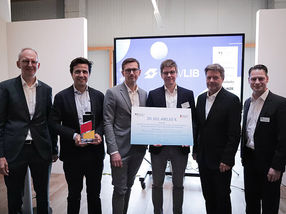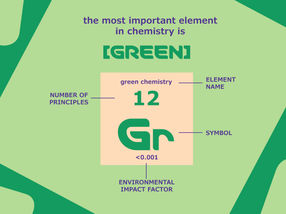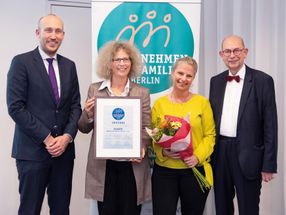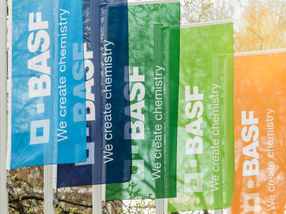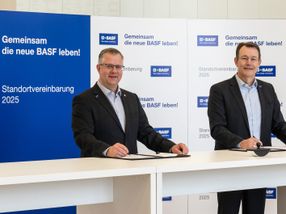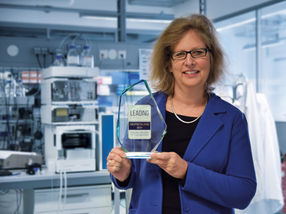Statistics on Chemistry Degree Programs in Germany: More International Students
Around 30 percent of doctoral students in 2024 came from abroad
Advertisement
Chemistry studies in Germany enjoy an excellent international reputation. In 2024, around 30 percent of doctoral students came from abroad. The number of foreign students at the beginning of their studies and especially during their master's program has also been steadily increasing for years. This is shown by the current statistics on chemistry degree programs published by the German Chemical Society (GDCh).
In 2024, a total of 8,004 people began a chemistry degree program (2023: 8,248). The number of students who completed a chemistry degree program with a master's degree or the First State Examination was 3,546 (2023: 3,483). The number of doctorates awarded rose to 2,120 last year (2023: 2,040). Job-seeking graduates with completed doctorates were similarly successful in entering professional life as in the previous year.
The proportion of international doctoral students in chemistry has more than doubled since the turn of the millennium. While only 13% of doctoral students came from abroad back then, this figure had risen to 30% by 2024. Internationalization is evident at all levels of study: 14.9% of first-year students in chemistry, 20% of master's graduates, and 25.4% of those successfully completing their doctorates come from abroad. While international students previously came to Germany primarily to pursue their doctorates, they are now increasingly choosing to obtain their bachelor's or master's degrees here.
The following results were obtained for the individual study programs:
- In the field of Chemistry/Business Chemistry, universities reported 5,166 new students (2023: 5,024). 1,910 students (2023: 1,891) successfully completed their bachelor's degree, and 2,052 received their master's degree (2023: 2,111). The median study duration was 7.0 semesters to complete a bachelor's degree (2023: 7.0) and 5.5 semesters to complete a master's degree (2023: 5.3). In 2024, 1,828 people earned their doctorates in Chemistry/Business Chemistry (2023: 1,771). The median doctoral duration was 8.8 semesters (2023: 8.4).
- In Biochemistry and Life Sciences, 1,599 people began their studies (2023: 1,680). The number of bachelor's degrees was 871 (2023: 905), and the number of master's degrees rose to 856 (2023: 807). The number of doctorates also rose to 253 (2023: 210). The median study duration was 6.9 semesters for bachelor's degrees (2023: 6.9), 5.4 semesters for master's degrees (2023: 5.4), and 9.3 semesters for doctorates (2023: 9.3).
- In food chemistry , the number of new students fell from 307 in the previous year to 274. A total of 115 students passed the main examination A (1st state examination) or the diploma examination (2023: 150) and 135 people passed the main examination B (2nd state examination) (2023: 125). In addition, the universities reported 137 bachelor's degrees and 150 master's degrees (2023: 132 and 133 respectively). The number of doctorates was 39 (2023: 59). The average length of study to complete the main examination A was 11.0 semesters (2023: 10.9). Bachelor's degrees took a median of 6.8 semesters (2023: 6.7) and master's degrees 4.6 semesters (2023: 4.5). Due to insufficient data, no average length of study for a doctorate could be determined.
- At universities of applied sciences (HAW), 965 people began studying chemistry (2023: 1237). The number of bachelor's degrees fell to 543 (2023: 583), and the number of master's degrees fell to 373 (2023: 415). The median duration of study was 8.3 semesters for bachelor's degrees (2023: 8.0) and 4.7 semesters for master's degrees (2023: 4.2).
Around 97% of all bachelor's graduates at universities and 67% at universities of applied sciences went on to pursue a master's degree. Around 80% of master's graduates at universities began a doctorate.
For 45% of doctoral graduates in chemistry, their first step into professional life is known. According to university data, 42.4% took up a position in the chemical and pharmaceutical industry (2023: 42.4%), 17.6% (2023: 17.4%) accepted a temporary position in Germany (including postdocs). 14.8% worked in the rest of the economy after graduation (2023: 14.8%), and 9.5% took a position abroad after graduation (2023: 9.8%). Around 4.4% remained at a university or research institute (2023: 5%). Around 3.7% of graduates held a position in the public sector (2023: 4%). At the time of the survey, 6.6% were considered job seekers (2023: 6.2%).











